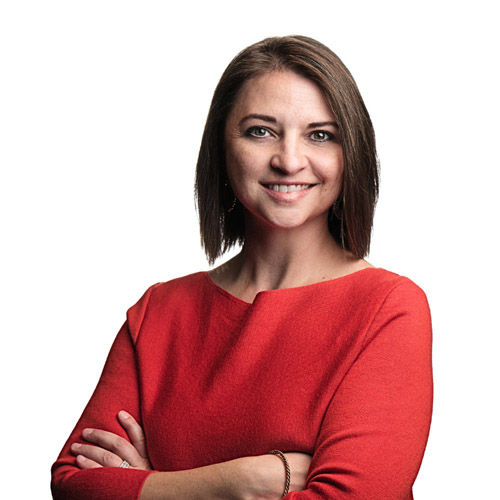Identifying and Avoiding “Junk Science” in Forensic Psychological Assessments
Presented by: Tess M.S Neal, PhD

This on-demand professional training program on Identifying and Avoiding “Junk Science” in Forensic Psychological Assessments is presented by Tess M.S Neal, PhD.
This program covers the concept of “junk science” and how justice systems have tried to cope with this problem of separating pseudoscientific evidence from sound evidence, screening the former out, and allowing the latter in via evidence admissibility rules. Dr. Neal takes a close look at why this task is so challenging for courts and how these issues apply to forensic mental health evidence in particular. Specifically, this program covers in detail the results of a two-part investigation of psychological assessments by psychologists in legal contexts.
The first part involves a systematic review of the 364 psychological assessment tools psychologists report having used in legal cases across 22 surveys of experienced forensic mental health practitioners, focusing on legal standards and scientific and psychometric theory. Results from the first part reveal wide variation in quality.
The second part is a legal analysis of admissibility challenges with regard to psychological assessments. Results from the second part show that courts are not well-calibrating this variation in quality, and courts often fail to exercise the scrutiny required by law.
There is a discussion on why and how this problem is not unique to mental health evidence and what courts are doing to try to address this problem. For instance, the US Federal Rules of Evidence guiding the admission of expert testimony just changed on December 1, 2023. This program discusses this change and what it means for forensic mental health experts and ends with coverage of several free high-quality resources available to mental health experts to improve the quality of forensic assessment practice.
This program can help advance a person's career by knowing more about how to be better at assessment, how to evaluate the quality of other people's assessments, and overall can improve the quality of their work and the field. This program is uniquely valuable because this is the only work being done on this topic, and the program is one of a kind. This program is intended for all professionals in any stage of their career; any specialty area, and any environment involving law and mental health.
Upon completion of this training, participants will be able to:
Key topics covered in this training include:
Introduction to the use of mental health assessments in legal settings with case examples
Overview of forensic psychology within the field of psychology
Discussion on expert gatekeeping and courts' efforts to filter out pseudoscience
Importance of identifying solid science/expert evidence for courts and justice systems
Detailed analysis of a high-profile project on the validity and admissibility of forensic psychological assessments in the US
Evidence of courts allowing in evidence regardless of quality
A broader issue of quality variation in mental health evidence not unique to the US
Actions by courts and societies to address the issue of evidence quality
Recent change to US evidence law effective Dec 1, 2023, on admissibility of expert evidence
Conclusion with resources for improving the quality of psych assessment evidence
Palo Alto University, Continuing & Professional Studies (CONCEPT) is approved by, recognized by, or maintains sponsorship provider status with the following boards and agencies. We maintain responsibility for all content in our CE/CPD programs. For more information, visit here.
American Psychological Association (APA): Approved sponsor of continuing education for psychologists.
Association of Social Work Boards (ASWB): Approved continuing education provider (ACE program, Provider #1480), 11/22/2023–11/22/2026.
Canadian Psychological Association (CPA): Approved to sponsor continuing education for psychologists.
National Board for Certified Counselors (NBCC): Approved Continuing Education Provider (ACEP No. 7190).
Palo Alto University, Continuing and Professional Studies (CONCEPT) is approved by the American Psychological Association to sponsor continuing education for psychologists. Palo Alto University, Continuing and Professional Studies (CONCEPT) maintains responsibility for this program and its content. Palo Alto University, Continuing and Professional Studies (CONCEPT), is approved by the Canadian Psychological Association to offer continuing education for psychologists. Palo Alto University, Continuing and Professional Studies (CONCEPT), SW CPE is recognized by the New York State Education Department’s State Board for Social Work as an approved provider of continuing education for licensed social workers #SW-0356 and the New York State Education Department’s State Board for Mental Health Practitioners as an approved provider of continuing education for licensed mental health counselors. #MHC-0073. Palo Alto University, Continuing and Professional Studies (CONCEPT) has been approved by NBCC as an Approved Continuing Education Provider, ACEP No. 6811. Programs that do not qualify for NBCC credit are clearly identified. CONCEPT Professional Training, #1480, is approved to offer social work continuing education by the Association of Social Work Boards (ASWB) Approved Continuing Education (ACE) program. Organizations, not individual courses, are approved as ACE providers. State and provincial regulatory boards have the final authority to determine whether an individual course may be accepted for continuing education credit. CONCEPT Professional Training maintains responsibility for this course. ACE provider approval period: 11/22/23-11/22/26. Social workers completing this course receive (clinical or social work ethics) continuing education credits.